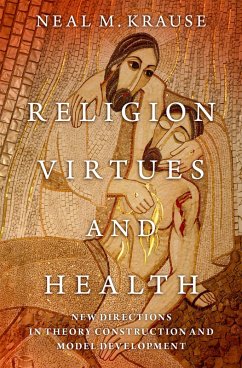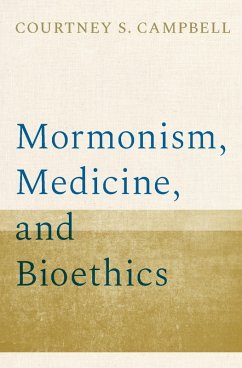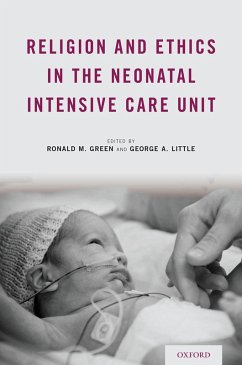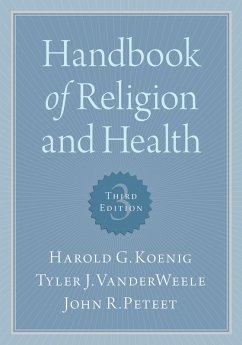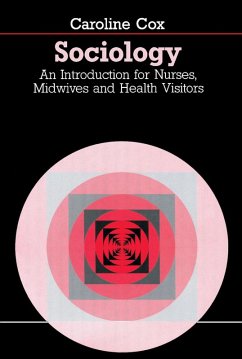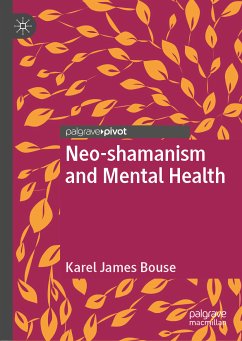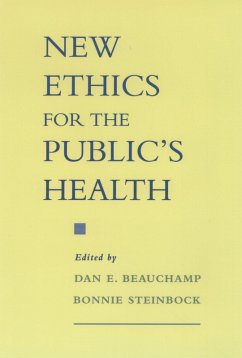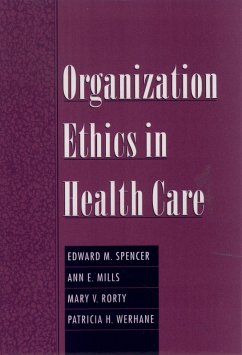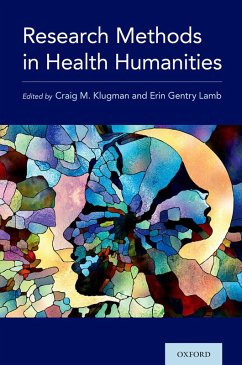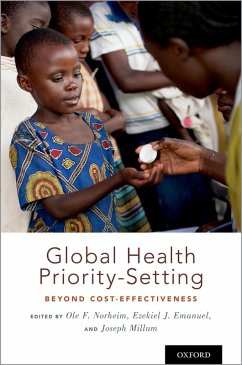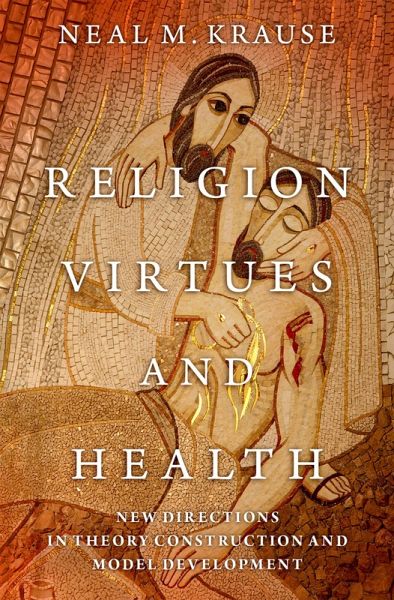
Religion, Virtues, and Health (eBook, PDF)
New Directions in Theory Construction and Model Development
Versandkostenfrei!
Sofort per Download lieferbar
39,95 €
inkl. MwSt.
Weitere Ausgaben:

PAYBACK Punkte
20 °P sammeln!
The landscape of the religion and health literature is littered with a plethora of models so large and so unwieldy that they are impossible to estimate empirically. Neal Krause strikes out in a different direction, developing a core conceptual scheme that is evidence-based and can be verified empirically. The relationships in it are based on empirical findings from prior studies or, when no empirical support exists, these relationships can be bolstered by a convincing theoretical rationale. As a result, the relationships he posits can be supported, refuted, or modified. This is a necessary fir...
The landscape of the religion and health literature is littered with a plethora of models so large and so unwieldy that they are impossible to estimate empirically. Neal Krause strikes out in a different direction, developing a core conceptual scheme that is evidence-based and can be verified empirically. The relationships in it are based on empirical findings from prior studies or, when no empirical support exists, these relationships can be bolstered by a convincing theoretical rationale. As a result, the relationships he posits can be supported, refuted, or modified. This is a necessary first step toward cumulative knowledge building. In Religion, Virtues, and Health: New Directions in Theory Construction and Model Development, Krause suggests that religion may operate, in part, by bolstering physical health as well as psychological well-being. The book is designed to explain how these health-related benefits arise. The main conceptual thrust of his model is that people learn to adopt key virtues from fellow church members, including forgiveness, compassion, and beneficence. These virtues, in turn, promote a deeper sense of meaning in life. Then, meaning in life exerts a beneficial effect on health and well-being. This ambitious work, the capstone of Krause's long and distinguished career, makes a number of signal contributions: First, his theory construction and model development strategy are unique--there simply is nothing like it in the literature. Second, his work constitutes a groundbreaking effort to bridge the gap between theoretical discussions of communities of faith and the actual assessment of this core religious entity in practice. Third, the approach he advocates to study religion and health is generic because it can be readily adopted by researchers in unrelated social and behavioral science fields. And fourth, by showing how he practices his craft, he provides a pragmatic approach to conducting research that will be of great interest to established researchers, emerging investigators, and students alike.
Dieser Download kann aus rechtlichen Gründen nur mit Rechnungsadresse in A, B, BG, CY, CZ, D, DK, EW, E, FIN, F, GR, HR, H, IRL, I, LT, L, LR, M, NL, PL, P, R, S, SLO, SK ausgeliefert werden.




